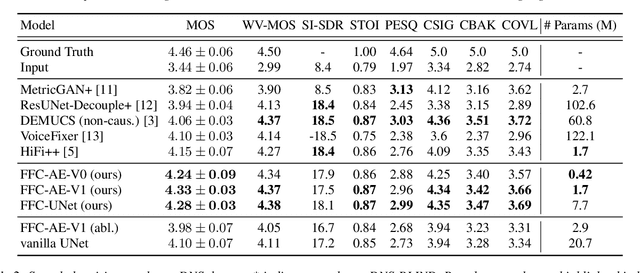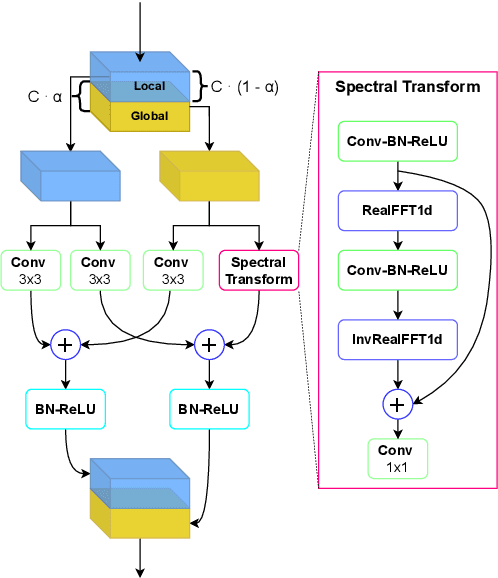FFC-SE: Fast Fourier Convolution for Speech Enhancement
Paper and Code
Apr 06, 2022



Fast Fourier convolution (FFC) is the recently proposed neural operator showing promising performance in several computer vision problems. The FFC operator allows employing large receptive field operations within early layers of the neural network. It was shown to be especially helpful for inpainting of periodic structures which are common in audio processing. In this work, we design neural network architectures which adapt FFC for speech enhancement. We hypothesize that a large receptive field allows these networks to produce more coherent phases than vanilla convolutional models, and validate this hypothesis experimentally. We found that neural networks based on Fast Fourier convolution outperform analogous convolutional models and show better or comparable results with other speech enhancement baselines.
 Add to Chrome
Add to Chrome Add to Firefox
Add to Firefox Add to Edge
Add to Edge